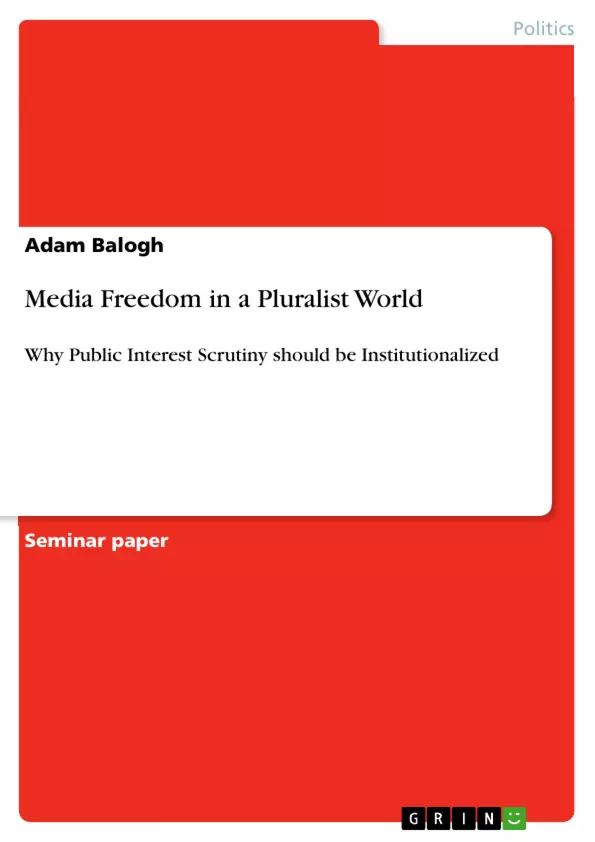Earlier this year, when a list of some 230 Nobel Peace Prize candidates was announced by the Oslo committee, for the first time in over a hundred years of the traditionalized execution of Alfred Nobel’s will, a whistleblower has found his way on the said list: Bradley Manning (Welt 2012). Although the European Union has prominently, and somewhat controversially, received the award (Zeit 2012), the nomination of Manning highlighted the contemporary importance of the phenomenon of whistleblowing. Bradley Manning, a former U.S. Army soldier and intelligence analyst, was arrested in early 2010 on suspicions of having passed classified material on to the whistleblowing-hub Wikileaks (USD-C 2010). Among the documents, Manning is alleged to have leaked, are more than 250,000 U.S. diplomatic cables1 (Wikileaks 2011) and more than 500,000 U.S. Army reports2 (Wikileaks 2010), exposing them on the international stage leading to controversy about U.S. foreign policy and consequently their handling of whistleblowers. The extreme crackdown by U.S. authorities and the "inhumane" conditions under which Manning was detained (Amnesty International 2011) were exemplary of the force the U.S. Government is willing to employ in order to strike down such misconduct and, perhaps, the greater degree of or different approach to legal protection that needs to be afforded to military and intelligence whistleblowers.
Therefore, the purpose of this term paper is to show why military and intelligence whistleblowers need more legal protection and in particular why the so-called “public interest scrutiny” should be institutionalized. This paper intends to deliver an answer to these questions in the following manner: The first part comprises a summary of the term “whistleblowers” where it will be shown why the protection of whistleblowers is a fundamental element of media freedom in the 21st century. The second part entails a detailed description of the term “public interest scrutiny” and its importance in relation to military and intelligence whistleblowers. The second part will address the questions posed in this paper, i.e. in particular why the “public interest scrutiny” should be institutionalized. At last, the third part will bring forward policy recommendations on the basis of the findings in part one and two, including detailed suggestions about the possibility of institutionalizing “public interest scrutiny”.
Inhaltsverzeichnis (Table of Contents)
- Introduction
- Whistleblowing
- Media Freedom and Whistleblowing
- Legal Protection of Whistleblowers
- Public Interest Scrutiny
- Policy Recommendations
Zielsetzung und Themenschwerpunkte (Objectives and Key Themes)
This term paper examines the importance of legal protection for military and intelligence whistleblowers, particularly focusing on the need to institutionalize "public interest scrutiny." The paper utilizes the case of Bradley Manning as an exemplary basis for its argumentation, exploring the contemporary significance of whistleblowing in the context of media freedom and the role of public interest scrutiny in protecting whistleblowers.
- The importance of legal protection for whistleblowers, particularly in the military and intelligence sectors
- The role of media freedom in exposing wrongdoing and holding power accountable
- The concept of "public interest scrutiny" and its application to whistleblower cases
- The need to institutionalize "public interest scrutiny" to provide greater protection for whistleblowers
- The implications of the Bradley Manning case for understanding the legal and ethical challenges surrounding whistleblowing
Zusammenfassung der Kapitel (Chapter Summaries)
- Introduction: This chapter introduces the topic of whistleblowing and its relevance in the contemporary context, utilizing the case of Bradley Manning as a focal point. It highlights the importance of legal protection for whistleblowers, particularly in the military and intelligence sectors.
- Whistleblowing: This chapter defines the term "whistleblowing" and explores its various definitions and interpretations. It examines the importance of whistleblowing in the context of media freedom and the need for legal protection for whistleblowers.
- Public Interest Scrutiny: This chapter delves into the concept of "public interest scrutiny" and its relevance to military and intelligence whistleblowers. It explores the potential benefits and challenges of institutionalizing "public interest scrutiny" and discusses its role in protecting whistleblowers.
Schlüsselwörter (Keywords)
This paper focuses on the themes of media freedom, whistleblowing, legal protection, public interest scrutiny, and institutionalization. It examines the case of Bradley Manning as an example of the challenges and complexities surrounding whistleblowing in the military and intelligence sectors. The paper explores the need for greater legal protection for whistleblowers and proposes policy recommendations aimed at institutionalizing "public interest scrutiny" to provide greater protection for those who expose wrongdoing.
Frequently Asked Questions
What is whistleblowing in the context of media freedom?
Whistleblowing is the act of exposing wrongdoing within an organization. It is a fundamental element of media freedom as it helps hold powerful institutions accountable.
Who is Bradley Manning and why is his case significant?
Manning was a U.S. soldier who leaked classified documents to WikiLeaks. His case highlighted the extreme legal risks and lack of protection for military whistleblowers.
What does "public interest scrutiny" mean?
It is a legal concept where the benefit of disclosing information to the public is weighed against the harm caused by leaking classified or private data.
Why should public interest scrutiny be institutionalized?
Institutionalizing it would provide a clear legal framework to protect whistleblowers who act in good faith to expose corruption or human rights abuses.
What are the policy recommendations for protecting whistleblowers?
Recommendations include strengthening legal safeguards, establishing independent oversight bodies, and ensuring humane treatment for those who leak information in the public interest.
- Quote paper
- Adam Balogh (Author), 2012, Media Freedom in a Pluralist World, Munich, GRIN Verlag, https://www.grin.com/document/209229



